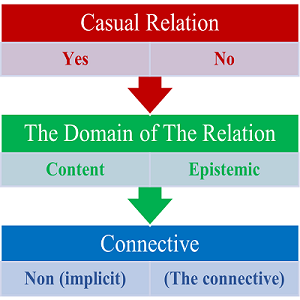M.S. Candidate: Beyza Eren
Program: Cognitive Science
Date: 26.01.2023 / 13:30
Place: A-212
Abstract: Children acquire language effortlessly without a systematic instruction (Guasti, 2016). In the acquisition process, one of the achievements that take long time for children to reach an adult-like performance is the use of connectives (Cain & Nash, 2011; Oğuz & Özge, 2020). There are very few studies on this subject in Turkish. This study aims to fill this gap via offering an insight into the content and epistemic causal connective acquisition process of children aged 6;5- 8. For this purpose, to test whether there are connectives that children use specific to domains of causality as adults do (Çokal, Zeyrek, & Sanders, 2020); children are given both descriptive (biased for content relations) and argumentative (biased for epistemic relations) tasks. The descriptive task, (picture pairs presenting a causally related short story) is given to the participants to describe what they see. In the argumentative task, participants were supposed to argue which one is the best out of a set of photographs, explaining why (Evers-Vermeul & Sanders, 2011). The same process is applied to adult participants to enable comparison. The data is annotated in terms of whether they present a causal relation in the first step, then their relation domain, and finally, the connective that establishes the relation. The data will be analyzed statistically. The results will be discussed in the scope of the children’s ability to produce content and epistemic causal relations and their preference of connective in these domains in comparison to adults.
